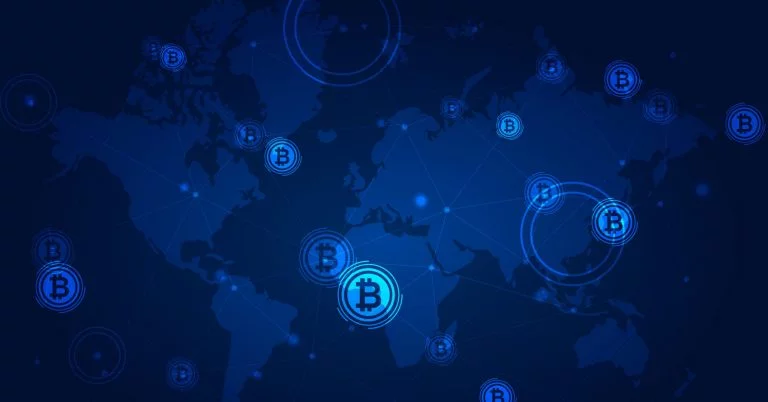
- Amber Smith
- September 12, 2022
Blockchain is a technology for processing, storing information, and identifying customers. In English, it is translated as a “chain of blocks.” The technology itself was proposed in 2008 by Satoshi Nakamoto. The main features of this technology:
- The blockchain stores data on all transactions over the entire history of the system.
- You cannot delete or replace information “retroactively” but only make a new agreement.
- Data is stored not on one central server but on many computers of network participants.
The operation of the Blockchain can be compared with Torrent. The system functions in P2P mode (peer-to-peer – a computer network where all participants are equal).
Why learning blockchain technology is essential?
Blockchain has become a natural sensation. It happened after the small price jump of Bitcoin some time ago. In ours, it has become a tool that is widely used in technical solutions. Modern students should learn Blockchain technology.
It is a young industry with many opportunities
Today’s students want to create something significant. It can be challenging to make a breakthrough. There are many investigations, so creating a new thing is hard. So such a young and understudied field offers ample opportunity for innovation.
Such technology will solve many problems of humanity. It is worth browse through social issue essays at eduzaurus to understand what problems are currently relevant. Everyone can read examples essays or find some research paper. This way, people can think about how this technology can solve this or that problem.
Future of blockchain technology
For the first time, blockchain technology was used in 2009. Then creating, the cryptocurrency “Bitcoin” gained wide popularity for developing other cryptocurrencies. The positive qualities of the system contributed to its further penetration. Blockchain is used in banking, public administration, jurisprudence, and other areas.
Blockchain in education
Blockchain makes peer-to-peer learning possible. The technology also encourages standardization across educational institutions. It allows enabling sharing of a platform where no teacher holds an exclusive license. It also provides a means of sharing value, in the form of a public token, only possible on a blockchain.
Ensuring the safety of students
Educational institutions increasingly rely on online databases. The risk of:
- Hacking;
- Altering grades;
- Adding unearned certificates;
- Deleting the entire database also increases;
Blockchain solves this problem at a fundamental level. The technology requires consensus to confirm transactions. They become permanent once they are sufficiently confirmed. Since each full node maintains an independent copy of the Blockchain. This technology verifies it independently of others. There are no central points of attack.
Authentication and provision of certification
Those using Blockchain in education can easily verify the authenticity of their data using the technology. It applies both to teachers who are getting a job and to students. They all also get complete control over their data.
Identification, accreditation, and tracking
Every teacher should join the Blockchain. This way, their data moves from individual data stores to an easily accessible repository. It can be divided across borders and industries. Students no longer need to present certificates to prove their skills, as all their data is available online.
Medicine
This technology offers a universal platform for creating projects. The field of healthcare isn’t an exception. Electronic charts provide a picture of health. It contains a complete chronology of the patient life. This way:
- Medical history;
- Diagnostic methods;
- Treatments are in one place.
Counterfeit medicines are an acute problem in pharmaceuticals. Tokenization of the supply chain gives users confidence in the originality of pills. So, the medicine can prove efficacy. The distribution of donor organs can be improved using Blockchain. This technology in medicine makes the process transparent and unfalsified. Each participant can verify the honesty of ranking candidates for receiving organs. Also, clinics increase quality with the help of transfer speed.
Business
The use of blockchain technology makes it possible to reduce time significantly. So individual businesses won’t spend time on the processes of the organization. Blockchain can also considerably improve the quality of the work process. This system excludes the sale of counterfeit goods or the entry of low-quality products onto store shelves. Therefore, your data will always be protected from various forgeries and falsifications.
Blockchain has flexibility. The company’s business processes can respond to any external or internal changes. The operation of smart contracts will significantly improve the flexibility of business processes. It will happen using the automatic implementation of all terms of the agreement. In addition, smart contracts allow the exchange of various assets. It occurs with the participation of external intermediaries, which significantly simplifies work processes. Also, procedures such as confirmation of compliance no longer cause difficulties.
Conclusion
Blockchain provides a lot of advantages. This technology provides:
- Reliability;
- Professional product service;
- Security, data transparency;
- The impossibility of falsifying information;
All this means exciting changes in many spheres. Every year, technologies develop fast. Blockchain is precisely what you should pay attention to. This technology will make our life easier and better.





































































 Guides
Guides News
News Blockchain
Blockchain Cryptocurrency
& Digital Assets
Cryptocurrency
& Digital Assets Web3
Web3 Metaverse & NFTs
Metaverse & NFTs
